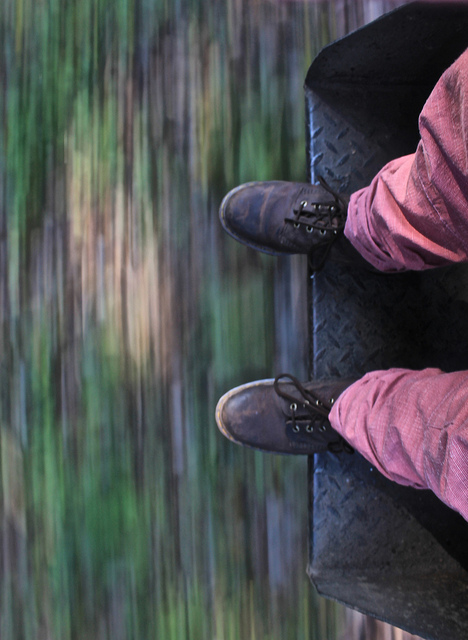
A month ago, a child I knew well jumped from the 24th floor to her death.
She was 15 years old and a twin—the same age as my own twin girls.
In the last six months, this is the second teen suicide in our small town. The first one was a 15-year-old boy who hung himself. It was shocking and worrying. This latest one, though, hit especially close to home for me and eclipsed everything.
In the month since her suicide, I have been profoundly affected by my need to understand why it happened.
In teenagers, a major—if not the leading—cause of suicide is depression, stemming from feelings of hopelessness and not belonging. Factors leading to depression in teens are family patterns, major life changes, bullying, and harassment. It is also important to bear in mind that some children are more vulnerable biologically, their genetic predisposition making it even harder to deal with their environment.
It is difficult to accept that a girl at this young age could feel that much pain and that much despair. I fixate on how misunderstood and disconnected she must have felt. As a mother of twins, I am especially puzzled over the fact she’d left her twin. In my observation, having a twin seems to provide an added layer of support and connection. That is why leaving behind a twin seems to me such a shocking display of her sense of disconnect.
As parents, we try to fathom what happened, and most of us are engulfed by fear. There is talk of drugs. Parents are afraid of drugs—they may lead to an overdose and death. But this was not an overdose. Drugs do not lead to jumping off terraces.
It’s too easy to put the blame on drugs, or bad influences, or social media, or to criticize the parents. We can tighten the screws of parental control even more, or pretend this is not about us, and go on with our lives as usual—just more fearfully.
But this is about us. All of us.
The danger does not come from the outside. It comes from the inside. We always think that harm will come from “others.” Other children are bad influences. Other parents are neglectful. I am no child psychologist, but I am a parent who needs to understand where the danger truly is.
Whether it is alcohol, drugs, sex, or social media, we cannot control our children’s environment 100 percent of the time. What we must try to do is to eliminate the need to escape our lives.
The girl who jumped to her death was suffering.
And no one noticed.
She did not seem sad. Like all her peers, she posted smiley pictures. She had pretty clothes and good-looking vacations. She went to a good school and led an active social life.
The boy who died a few months earlier chatted to one of my daughters the evening before his suicide and showed no signs of distress. Those who saw him in school the day before said he was smiling.
This, to me, seems to be the key: our children smile while harboring suicidal thoughts.
There is a separation between our external and inner worlds.
Pain and suffering arise from a disconnect between what we feel inside and what we display to the outside world. We hide our soft spots while seeking outside validation. We feel that we can only be accepted if we hide the unattractive parts of ourselves, anything that is less than perfect. Thus, we never allow others to know us in our wholeness, and never get the satisfaction of being seen and loved for exactly who we are.
Teenagers thrive on the acceptance of their friends.
A hormonal peer may carelessly say something that will send one of my daughters spinning into a negative vortex for months, if not forever. Yet, if she shows a reaction, like tears or sadness, she is cruelly ridiculed. Our children learn to hide their feelings in order to cope.
At home, things are no less complicated. The child who excels in school or in sports is celebrated both in school and at home, making the other children feel inferior and “wrong.” When our children do not do as well as those of our friends, for example, we as parents feel inadequate, and we pass the pressure on to our kids.
It is hard work to raise children. We feel responsible for helping them become people who can successfully navigate life. And to succeed, they need to learn to live according to society’s rules and expectations.
We take our unique children with different emotional and physical needs and proceed to mold them into what is convenient for us and what “looks” good to others—which can often be contrary to their true nature. First, they have to fit into family routine, eating when it suits us, and sleeping when they are supposed to. We punish them for their temper tantrums, which are really expressions of protest. As they grow, we teach them hypocrisy, otherwise known as social etiquette. They must be pleasant and smiley, or quiet and obedient, no matter how some creepy relative makes them feel.
When we force children to act against their nature for the sake of politeness, we kill their reliance on their inner voice.
We thus instill in them a lifetime of ignoring their feelings and intuition, the only true barometer of knowing who is “good company” to keep.
Having lived in several cultures, I know that rules of behavior change from country to country. The ability to adapt is important and necessary for survival. But it is also essential to relay to our children that all rules are man-made and different cultures value different kinds of behavior. This helps to see that definitions of what is “good” and “bad” are actually quite variable, depending on the environment in which we live at the moment.
It has nothing to do with our inner being, nor should it act as a reflection of who we are.
But to be able to instill that freedom in our children, we need to free ourselves and teach by example. For that, we must become aware of and heal our own childhood wounds and feelings of inadequacy, unconsciously inflicted upon us by our own parents and environment. We must have the courage to live in our authenticity and take off the masks we wear to please others. We have to learn to love unconditionally: ourselves, our partners, and our children.
How can our children feel truly loved, when we only accept some of who they are? How can we love our children in their completeness, when we are unable to accept parts of ourselves?
Our whole society is based on disconnect from our true nature. From our lack of acceptance of the way our bodies are shaped by nature, to our complete disconnect from nature itself.
We live in the world increasingly focused on surface achievements as signs of success, from material possessions to insincere smiles, as we compete with each other. We raise humans who hate themselves for not being good enough and have no outlets to express their true feelings, seeking—right from a young age—ways to escape what we call “reality.”
When we understand that we are part of nature, perfect in our imperfection, we feel connected to something greater than our mundane lives. It is a security that comes from within.
We acquire a profound sense of respect for oneself and the gift of life. An ability to appreciate what we have, rather than wishing for what others have. An understanding of life’s cycles and shifts, and that change is normal, even if difficult. An acceptance of the inevitable ups and downs, changes in moods, and changes in circumstances.
Our children die from the disconnect with their true nature.
They instinctively kill those parts of themselves that do not fit in with what is expected of them. Suicide is just its most violent and visible display.
A sense of belonging is one of our basic needs. All humans desire being seen, understood, and loved for exactly who they are. Since adolescence is such a radical time of change, a teen’s need to belong is primal, it is where they get their sense of security.
When our children do not have their need for belonging met in a healthy place—from family, friends, clubs, and sports—they will get it in an unhealthy place, with inappropriate friends, drugs, and gangs.
“True belonging only happens when we present our authentic, imperfect selves to the world.” ~ Brené Brown
~
Relephant Bonus: 5 Mindful Things to Do Each Morning
~
Author: Galina Singer
Image: David Simmonds/Flickr; Youtube
Editor: Catherine Monkman
Copy Editor: Danielle Beutell
Social Editor: Yoli Ramazzina






Read 15 comments and reply